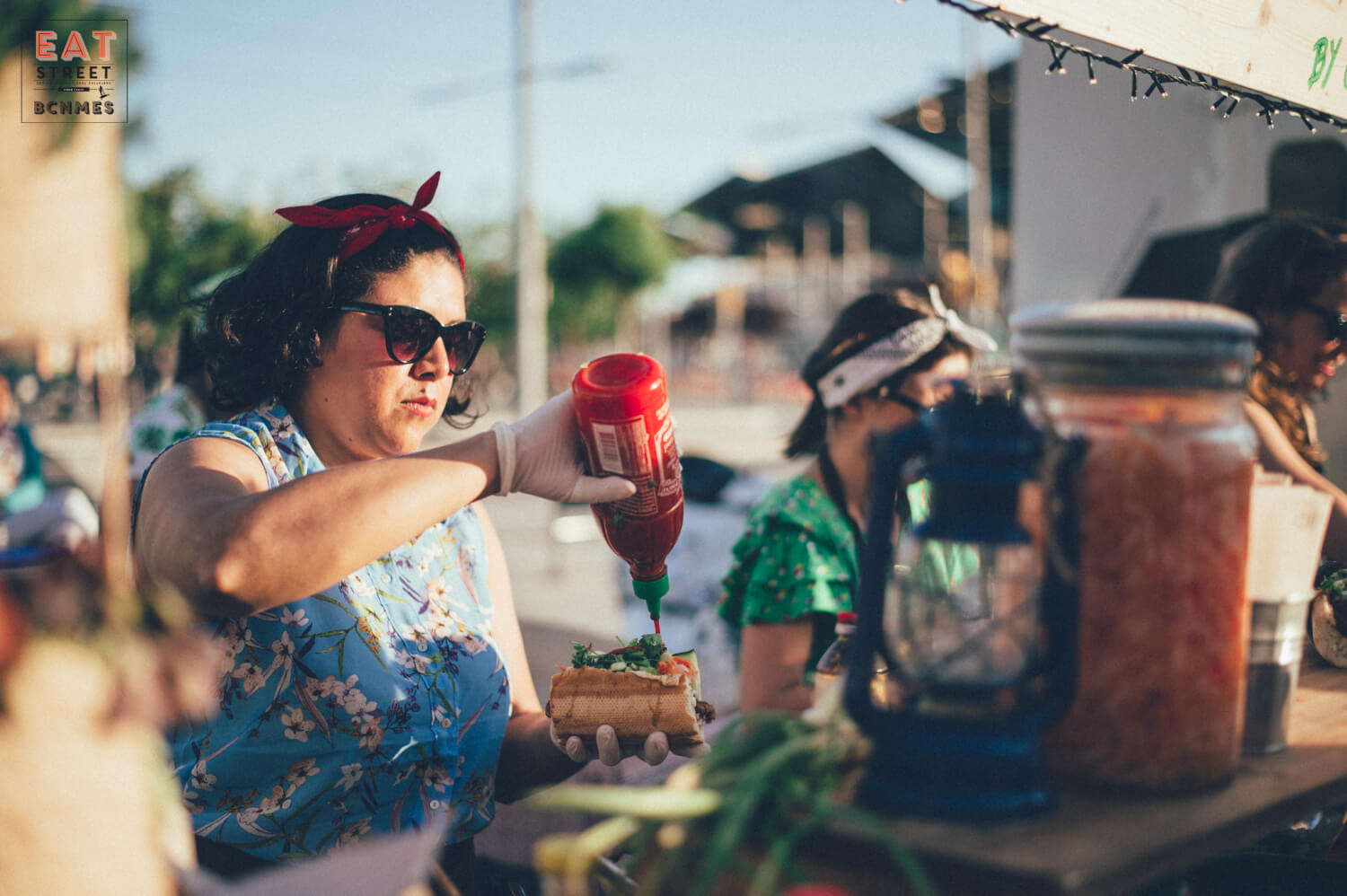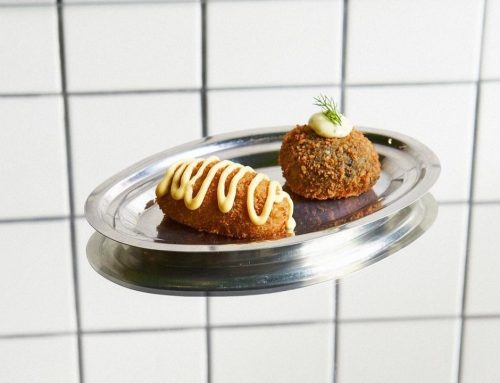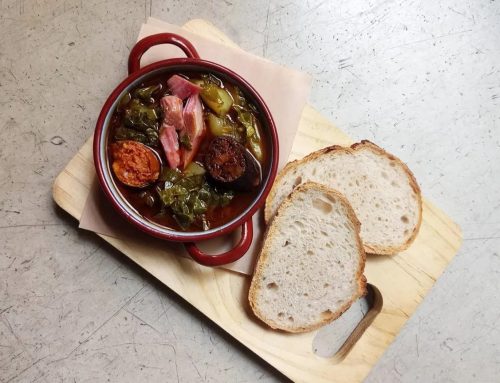 (In English down south…)
(In English down south…)
Pasé una hora al teléfono con un chef ayer. Hablamos de Barcelona, de Eat Street, de Van Van, Palo Alto, food trucks, restaurants, eventos, Facebook y mucho más. Hablamos sobre la sobresaturación y las modas burbuja que acaban explotando.
El chef también me contó algo de lo que no tenía previo conocimiento: los “food trucks” se han estado reuniendo. Quieren unir sus voces para cuando llegue el momento de alzarlas. Parece ser que tienen varias cosas que les gustaría expresarnos a nosotros, los organizadores de eventos, pero también a la ciudad y a su público.
Pero, ¿el qué? ¿y, por qué?
Como ya bien sabéis, la moda llamada “street food” finalmente ha llegado a Barcelona y casi cada evento (culinario y de otros tipos) quiere tener siempre algunos food trucks formando parte de su actividad. De hecho, ayer CIU llamó a BCN Més solicitando algunos food trucks para un evento de cierre de campaña. Es en serio.
Normalmente buscar algunos trucks no sería un problema. Pero este fin de semana hay una edición de Eat Street en el puerto el sábado, hay una edición de Palo Alto (arrancado por Eat Street y Flea Market el 24 de mayo del año pasado y posteriormente apropriado por Palo Alto mismo), y hay una edición de Van Van en Sant Cugat. Y a saber cuántos más rodajes, bodas y cierres de campaña. Las oportunidades de activar tu food truck este fin de semana son infinitas. Los teléfonos de los chefs suenan sin parar. Suena perfecto, ¿no? ¿Un sueño?
Pues no. A pesar de la cantidad de ferviente demanda, parece ser que muchos chefs locales, propietarios de food trucks, entre otros, no están muy contentos con la situación.
Han estado en ferias de ciencias donde fueron clasificados y abandonados a su suerte como “catering” y donde la hora de la comida coincidió con el desmontaje total del evento.
Han ido a festivales de arte urbano donde 5 chefs habrían sido más que suficientes y, por desgracia, fueron 12. Han ido a Eat Street (Nit dels Museus) que competía con un Van Van de dos días organizado en Montjuïc. Han tenido días mediocres donde han apenas llegado a cubrir gastos y algo más, y han tenido días francamente insostenibles, en los que las ventas totales solo subían a 75 raciones en total.
Sumemos: pagando entre 120 y 250 euros por día para estar en un evento más costes de contratar staff y la compra de ingredientes, un chef puede encontrarse en apuros si un evento no funciona.
Algunos de los chefs, entre ellos el que me estuvo hablando por teléfono, son muy conscientes sobre la cantidad de dinero que les cobran por participar en determinados eventos, cómo se les trata allí donde van, y la manera en la que los organizadores estamos o no sobresaturando la pequeña escena street food de Barcelona.
Nosotros también tenemos estos temas en mente. Aunque Eat Street acaba de celebrar su primer año de vida con ventas record de los chefs (edición aniversario 18 de abril), es fácil imaginar que, con tantos eventos en los que la demanda de food trucks es exagerada e innecesaria, el público acabe aburriéndose de tantos eventos iguales y sin alma.
En la era de lo instantáneo, ¿está todo destinado de ir del boom al olvido en un tiempo record? El chef misterioso me contesta a través del teléfono que no, y su recomendación es enseñar al público por qué Eat Street es diferente.
Así que aquí vamos con nuestro primer borrador del Eat Street Manifiesto:
- Eat Street es un evento de comida callejera para la gente. No confundirlo con la presencia de food trucks en otros eventos.
- El street food es algo que se come en la calle (allí donde es legal) y en espacios urbanos. Si necesitáis un entorno idílico para comer un plato en formato callejero, entonces A) No le llaméis street food y B) Id a Palo Alto.
- Eat Street no exige a sus chefs tener un food truck para participar en los eventos. Únicamente nos importa lo que a los chefs les importa, la comida y cómo se presenta ésta al público.
- Eat Street es para gente simpática, abierta, que ama comer en diferentes situaciones y formatos. Nuestros chefs nos han comentado que nuestros eventos están llenos de ‘gente que realmente viene a probar la comida’. Queremos que así siga siendo. Gracias a todo nuestro público por hacerlo posible.
- Eat Street es un evento para los chefs. Cuando decimos, “haz una cosa y hazla bien” no queremos decir que hagáis lo mismo por el resto de vuestras vidas. No nos importa si la gente os conoce por vuestro plato famoso. Este es un evento para gente creativa que ama cocinar. Queremos foodies (los de verdad) que están dispuestos a correr riesgos, probar cosas nuevas, y petarlo con creaciones geniales y suculentas.
- Eat Street busca chefs (con o sin restaurante) que quieran darlo todo. Nosotros damos el 100% de nosotros en nuestros eventos y queremos que los chefs tengan estas mismas ganas.
- Eat Street no se hace rico a costa de los chefs, no es nuestra idea, y es por ello que el coste de participación únicamente es para cubrir los costes de la electricidad.
- Eat Street está y estará siempre abierto a recibir feedback de parte de sus chefs y el público. Nuestro reto es mejorar, y comer bien a pie de calle mientras lo conseguimos. Pensad en este manifiesto como una Constitución, un documento abierto a enmienda.
El Equipo B
Eat Street Manifesto, Guiri Version:
I spent an hour on the phone with a chef yesterday. We spoke about Barcelona, Eat Street, Van Van, Palo Alto, food trucks, restaurants, events, the mystery that is Facebook, and much more. We spoke about over-saturation and fads that bubble and burst.
But this chef also told me something I was previously unaware of. “The food trucks” have been meeting. They’re uniting. They want to speak with a unified voice when the occasion calls for it. It seems they have a few things they’d like to express to we, the event organizers, to the city, to their public…
But what? And why?
As you well know, the trend that is «street food» has finally arrived in Barcelona and, as such, nearly every event (culinary and otherwise) is clamoring to have a few food trucks in on the action. Just yesterday CIU called BCN MÉS to ask for help getting some trucks together for an end of campaign event. Seriously.
Normally, of course, rounding up a few trucks wouldn’t be a problem. But this coming weekend, there’s an Eat Street in the port on Saturday, a Palo Alto (started by Eat Street and Flea Market on May 24th last year and subsequently appropriated by Palo Alto itself), and a Van Van in Sant Cugat. Plus, who knows how many film sets, weddings and end-of-campaign happenings are taking place. Opportunities are everywhere. Chefs’ phones are ringing off the hook. It sounds perfect, right? A dream?
Not exactly. It turns out many local chefs, food truck owners and otherwise, are not very happy about the situation.
They’ve been to science fairs where they were set aside where “catering” belongs and made to watch as the event was dismantled right at lunchtime. They’ve been to urban art festivals where five chefs would have been enough. Too bad there were 12. They’ve been to an Eat Street (Nit dels Museus) that competed with a two-day Van Van (Castell de Montjuïc). They’ve had mediocre days that cover costs and a tad more, and they’ve had downright unsustainable days selling 75 total.
When you pay between 120 and 250 euros a day to be in an event, and add staff costs and perishable ingredients to the total, you can quickly come out of a bad event a thousand euros down…or more. Come out of a couple of weekends like that and the number quickly multiplies.
Some of these chefs, the one I was speaking to included, are concerned about what they are being charged, how they are being treated, and whether or not we, the organizers, are over-saturating Barcelona’s little, local street food scene. As you can imagine, we also have these themes in mind. Eat Street just celebrated its one year anniversary in an event with record sales for our chefs (18 April), and yet it’s easy to imagine a future in which, regardless of how much we work, we’re swept under by the tide of a public tired of poorly organized events and the burnt-out chefs they take with them.
In the age of the instantaneous, is everything destined to go from boom to bust in record time? The protaganist’s answer (this mysterious chef on the other end of the line) was no, and the recommendation was to speak up, to show people why Eat Street is different.
So, here’s one attempt. An Eat Street Manifesto of sorts…
- Eat Street is a street food event for the people. Don’t confuse the presence of a food truck in other events as anything even remotely similar.
- Eat Street is also a street food event for chefs. Do one thing and do it well. Make it affordable, make it quality, make it delicious.
- Street food is eaten on the street (where legal) and in urban settings. If you need your street food in an idyllic setting then A) it isn’t street food and B) go to Palo Alto.
- Eat Street doesn’t care if its chefs have a food truck, a bicycle or some recycled aluminum scaffolding. We only care that they care, about their food first and foremost, but also about how it is presented.
- Eat Street is for friendly, open people who love food in its many varieties and forms. Our chefs have told us that our events are filled with people who «really come to taste and try the food». We’d like to keep it that way. Thank you to our loving public that has made that possible so far.
- Eat Street is for chefs. When we say «Do one thing and do it well» we don’t mean do one thing for the rest of your life. We don’t care if people know your restaurant for your one famous dish. This is an event for creative people who love to cook. We want foodies (the real ones) who are willing to take risks, try new things, and spice it up.
- Eat Street wants chefs (affiliated with restaurants or not) who give it their all. We will give 100% at our events and would like our chefs to do the same.
- Eat Street doesn’t make its money charging its chefs. The participation fee covers the costs of the generator.
- Eat Street is and will always be open to feedback from chef and public. The goal here is to improve, and eat well while we do it. Think of this manifesto as a constitution, a document open to amendment.
El Equipo B








